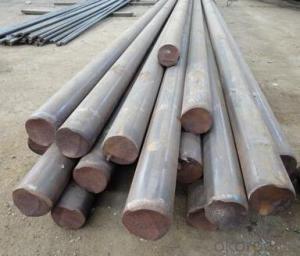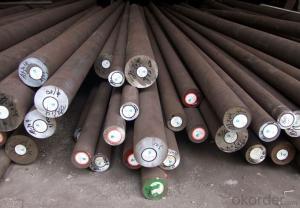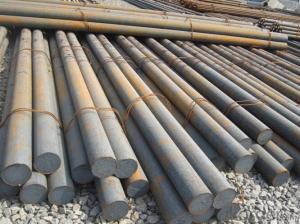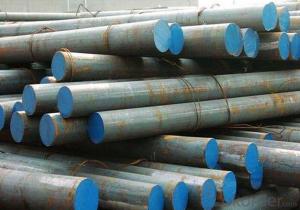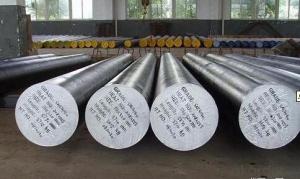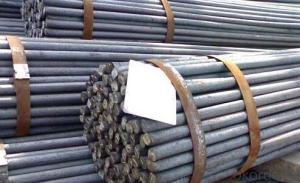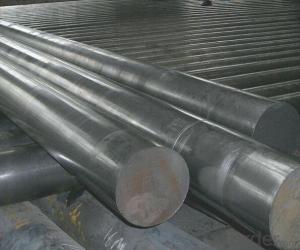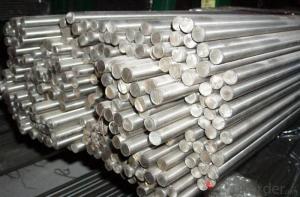SAE1018/1020/1035/1045/1050/1055/1060 Carbon Steel Round Bar
- Loading Port:
- Qingdao
- Payment Terms:
- TT OR LC
- Min Order Qty:
- 5 m.t.
- Supply Capability:
- 100000 m.t./month
OKorder Service Pledge
Quality Product, Order Online Tracking, Timely Delivery
OKorder Financial Service
Credit Rating, Credit Services, Credit Purchasing
You Might Also Like
Item specifice
Type:
Carbon Steel,Spring Steel,Bearing Steel,Gear Steel,Deformed Steel,Stainless Steel,Alloy Steel
Shape:
Steel Coil,Steel Sheet,Steel Wire Rod,Steel Flat Bar,Steel Square Bar,Steel Angle,Steel Round Bar,Steel Billets
Technique:
Hot Rolled,Cold Rolled,Cold Drawn,ERW,Forged,Saw,Extruded,EFW,Spring
Surface Treatment:
Galvanized,Coated,Copper Coated,Color Coated,Oiled,Dry,Chromed Passivation,Polished,Bright,Black,PVDF Coated
Certification:
ISO,SGS,BV,IBR,RoHS,CE,API,BSI,UL
Thickness:
12-480mm
Width:
12-480mm
Length:
6-12m
Outer Diameter:
12-480mm
Net Weight:
100kg
Packaging:
seaworthy packaging
SAE1018/1020/1035/1045/1050/1055/1060 Carbon Steel Round Bar
Detailed Information of SAE1018/1020/1035/1045/1050/1055/1060 Carbon Steel Round Bar
| Name | Steel Round Bar |
| Shape | Round Bar/Square Bar/Flat Bar/Plate/Wire |
| Standard | GB/ASTM/SAE/AISI/DIN/JIS/EN/BS |
| Surface Treatment: | Black/Peeling/Polished/Machined |
| Delivery Condition: | Hot Rolled or Forged/Peeled or Black Surface |
| Test | SGS/UT 100% Elements Testing |
| Certificate: | ISO/Mill Certificate |
| Service: | 24 hours online service / |
| more than 20 years trading and manufacture | |
| Quality Assurance: | the third party inspection, such as SGS, BV, TUV…etc. is acceptable |
| Packaging Details: | Seaworthy Packaging or as per customer's packing instruction |
Product Overviews of SAE1018/1020/1035/1045/1050/1055/1060 Carbon Steel Round Bar
| Product Name | Typical Grades | Diameter(mm) | Standard Adopted |
| Carbon Steel | 20 (1020/S20C/C22) | ||
| 40 (1040/S40C/C40) | Ø16-Ø300 | ||
| 45 (1045/S45C/C45) | |||
| Bearing Steel | GCr9 (51100/SUJ1) | ||
| GCr15 (52100/SUJ2/100Gr6) | Ø12-Ø250 | ||
| GCr9SiMn (A485-Gr.1/SUJ3) | GB/SAE/ | ||
| Cr-Mo Steel | 20Cr (5120/SCr420H/20Cr4) | JIS/DIN | |
| 40Cr (5140/SCr440/41Cr4) | Ø12-Ø250 | ||
| 42CrMo(4140/SCM440/42CrMo4) | |||
| Gear Steel | 20CrNiMo | ||
| 20CrMn(5115/SMnC420/20MnCr5) | Ø16-Ø600 | ||
| 20CrNiMo(8620/SNCM220/20CrMiMo2) |
Company Introduction of SAE1018/1020/1035/1045/1050/1055/1060 Carbon Steel Round Bar
CNBM International Corporation is the most import and export platform of CNBM group(China National Building Material Group Corporation) ,which is a state-owned enterprise, ranked in 270th of Fortune Global 500 in 2015.
With its advantages, CNBM International are mainly concentrate on Cement, Glass, Iron and Steel, Ceramics industries and devotes herself for supplying high quality series of refractories as well as technical consultancies and logistics solution.
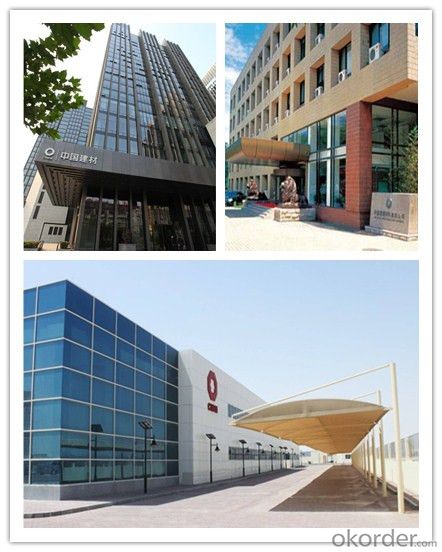
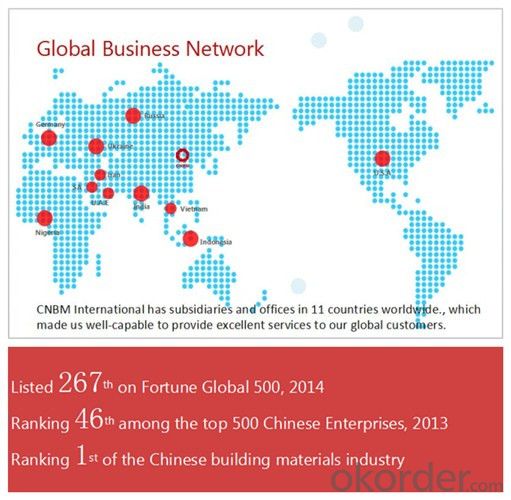
| After-sale service | l CNBM provides the services and support you need for every step of our cooperation. We’re the business partners you can trust; you can relax and get on with doing business. |
| l For any problem, please kindly contact us at any your convenient time, we’ll reply you in our first priority within 24 hours | |
| Advantages | l Industry experience over 20 years. |
| l Shipment of goods -More than 70 countries worldwide. | |
| l The most convenient transport and prompt delivery. | |
| l Competitive price with best service. | |
| l High technical production line with top quality products. | |
| l High reputation based on best quality products. | |
Packaging & Delivery of SAE1018/1020/1035/1045/1050/1055/1060 Carbon Steel Round Bar
| Packaging Detail | Sea worthy packing /as per customer's packing instruction |
| Delivery Detail | 15 ~ 40 days after receiving the deposit |
Products Show
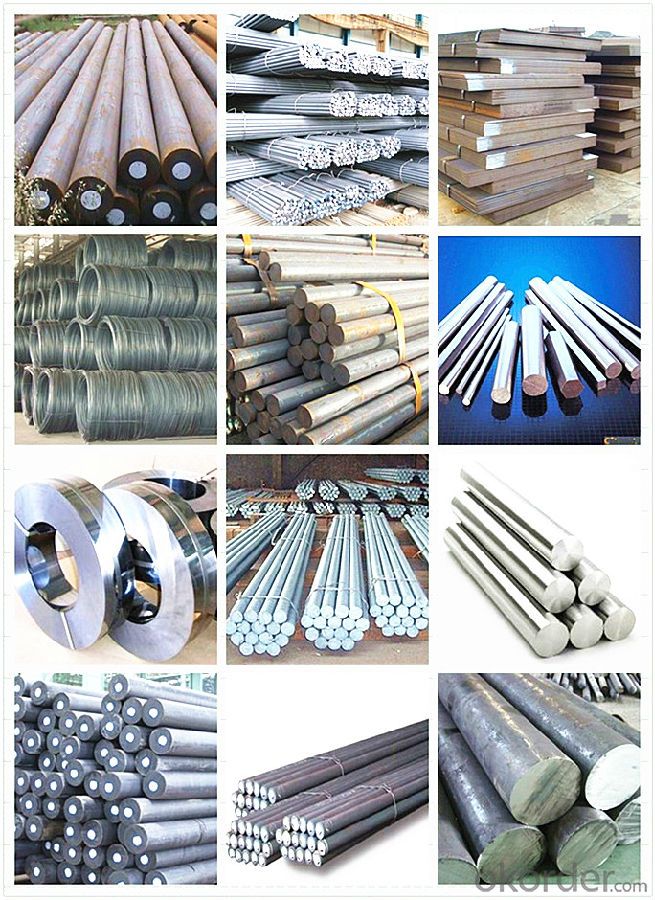
FAQ:
| Are you a trading company or manufacturer? | Manufacturer |
| What’s the MOQ? | 1000m2 |
| What’s your delivery time? | 15-20 days after downpayment received |
| Do you Accept OEM service? | Yes |
| what’s your delivery terms? | FOB/CFR/CIF |
| What's the Payment Terms? | 30% as deposit,70% before shipment by T/T |
| Western Union acceptable for small amount. | |
| L/C acceptable for large amount. | |
| Scrow ,Paybal,Alipay are also ok | |
| Why choose us? | Chose happens because of quality, then price, We can give you both. Additionally, we can also offer professional products inquiry, products knowledge train (for agents), smooth goods delivery, excellent customer solution proposals. |
| What's your available port of Shipment? | Main Port, China |
| What’s your featured services? | Our service formula: good quality+ good price+ good service=customer's trust |
| Where are your Market? | Covering more than 160 countries in the world |
- Q:What are the different shot blasting techniques used for special steel?
- Some of the different shot blasting techniques used for special steel include wheel blasting, air blasting, and tumble blasting. Wheel blasting uses a high-speed rotating wheel to propel abrasive particles at the steel surface, while air blasting involves using compressed air to propel the particles. Tumble blasting, on the other hand, involves placing the steel in a rotating drum and allowing the abrasive particles to impact the surface as the drum rotates. These techniques help to remove surface contaminants, improve surface finish, and enhance the overall quality of the special steel.
- Q:How does special steel contribute to the agricultural sector?
- The agricultural sector benefits greatly from the use of special steel in multiple ways. Firstly, special steel's strength and durability make it an ideal material for manufacturing various agricultural machinery and equipment. Tractors, plows, harvesters, and irrigation systems, among others, all require sturdy and reliable components. Special steel provides the necessary strength and resistance to wear and tear, enabling these machines to withstand the demanding conditions of agricultural work. In addition, special steel is perfect for producing high-quality cutting tools that are essential in farming operations. Sickles, scythes, and pruning shears, for example, need to have sharp and durable blades for efficient vegetation cutting. Special steel's hardness and strength make it a suitable material for manufacturing such tools, ensuring they maintain their sharpness even with prolonged use. Moreover, special steel contributes to the agricultural sector by enabling the construction of strong and durable infrastructure. Agricultural buildings, storage facilities, and fencing often require materials that can withstand the elements and protect crops, livestock, and equipment. Special steel, with its resistance to rust and structural integrity, can be used in the construction of barns, silos, sheds, and fencing, providing long-lasting and reliable structures. In summary, special steel plays a vital role in the agricultural sector by providing the necessary strength, durability, and corrosion resistance for the manufacturing of machinery, cutting tools, and infrastructure. These properties enhance efficiency, productivity, and reliability in agricultural operations, ultimately benefiting farmers and the overall agricultural industry.
- Q:How does cryogenic treatment affect the toughness of special steel?
- Cryogenic treatment has a significant impact on the toughness of special steel. It involves subjecting the steel to extremely low temperatures, typically below -150 degrees Celsius, for an extended period. This process transforms the microstructure of the steel, resulting in improved mechanical properties, including increased toughness. During cryogenic treatment, the steel undergoes a process called martensitic transformation, where the carbon atoms in the steel lattice rearrange themselves. This transformation leads to the formation of additional carbides, which are responsible for strengthening the steel and increasing its toughness. These carbides act as barriers, impeding the propagation of cracks and enhancing the resistance of the steel to fracture. Furthermore, cryogenic treatment also reduces the presence of retained austenite, a metastable phase in steel that can negatively impact its mechanical properties. The transformation of retained austenite into martensite during cryogenic treatment further improves the toughness of the steel. The increased toughness of cryogenically treated special steel makes it suitable for various applications that require high strength and resistance to fracture. It enhances the steel's ability to withstand heavy loads, impacts, and harsh environments. Additionally, cryogenic treatment can improve the wear resistance and dimensional stability of special steel. It is important to note that while cryogenic treatment can significantly enhance the toughness of special steel, it is not a standalone solution. Other factors, such as the initial composition and heat treatment of the steel, also play a crucial role in determining its overall mechanical properties. Therefore, cryogenic treatment should be considered as a complementary process to optimize the toughness of special steel.
- Q:What are the different surface treatments for special steel?
- There are several different surface treatments available for special steel, each serving a specific purpose and offering unique advantages. Some of the most common surface treatments for special steel include: 1. Galvanizing: This process involves coating the steel with a layer of zinc, which provides excellent corrosion resistance. Galvanizing is a popular choice for outdoor applications where the steel is exposed to moisture and harsh environmental conditions. 2. Powder coating: Powder coating involves applying a dry powder to the steel surface, which is then heated and cured to form a durable and protective coating. This treatment offers excellent resistance against corrosion, chemicals, and UV rays, making it ideal for various applications, including automotive parts, appliances, and outdoor furniture. 3. Nitriding: Nitriding is a surface hardening treatment that involves diffusing nitrogen into the steel surface. This process significantly increases the surface hardness, wear resistance, and fatigue strength of the steel. Nitriding is commonly used for high-performance components, such as gears, crankshafts, and injection molding screws. 4. Electroplating: Electroplating involves depositing a layer of metal, such as chromium, nickel, or gold, onto the steel surface through an electrochemical process. This treatment enhances the steel's appearance, provides corrosion resistance, and improves wear resistance. Electroplating is often used for decorative purposes or to enhance the performance of components in various industries. 5. Passivation: Passivation is a chemical treatment that removes iron contaminants from the steel surface, creating a passive oxide layer. This layer acts as a barrier against corrosion, improving the steel's resistance to rust and other forms of degradation. Passivation is commonly used for stainless steel components in industries such as food processing, pharmaceuticals, and medical devices. 6. Carbonitriding: Carbonitriding is a surface treatment that involves introducing carbon and nitrogen into the steel surface at high temperatures. This process forms a hardened case, improving wear resistance and fatigue strength. Carbonitriding is often used for high-stress components, such as gears, crankshafts, and camshafts. These are just a few examples of the different surface treatments available for special steel. The choice of treatment depends on various factors, including the desired properties, application requirements, and budget constraints. It is essential to consult with experts or manufacturers to determine the most suitable surface treatment for specific steel applications.
- Q:How does molybdenum improve the performance of special steel?
- Due to its unique properties and characteristics, molybdenum is crucial in enhancing the performance of special steel. Its role is multi-faceted and includes improving strength and toughness, increasing hardenability, enhancing corrosion resistance, and improving high-temperature strength and creep resistance. One of the primary benefits of molybdenum is its ability to significantly improve the strength and toughness of steel, making it more durable and resistant to deformation. This is achieved by forming a solid solution with iron, resulting in a fine-grained microstructure and reducing the formation of brittle phases in the steel. Another advantage of molybdenum is its impact on the hardenability of steel. It allows the steel to be heat-treated to achieve the desired mechanical properties. This is particularly important in the production of special steel, where high strength, wear resistance, and thermal stability are often required. By enabling effective heat treatment, molybdenum ensures that the steel can be processed to meet specific performance requirements, such as hardness, toughness, and dimensional stability. Moreover, molybdenum enhances the corrosion resistance of special steel, making it suitable for challenging environments. It forms a protective oxide layer on the steel's surface, acting as a barrier against corrosive substances like acids, alkalis, and salts. This corrosion resistance is crucial in applications where the steel is exposed to harsh conditions, such as marine environments, chemical processing plants, and oil and gas industries. Furthermore, molybdenum improves the high-temperature strength and creep resistance of special steel. It enables the steel to maintain its mechanical properties even at elevated temperatures, making it suitable for applications where the steel is subject to prolonged exposure to heat or mechanical stress. In conclusion, molybdenum plays a vital role in enhancing the performance of special steel by improving its strength, toughness, hardenability, corrosion resistance, and high-temperature properties. These attributes make molybdenum an essential alloying element in the production of special steel for various industries, including automotive, aerospace, energy, and tool manufacturing.
- Q:What are the different methods for improving the creep resistance of special steel?
- Several methods exist to enhance the creep resistance of special steel. One commonly employed technique involves alloying. By incorporating specific alloying elements like chromium, molybdenum, and vanadium, the steel's creep resistance can be significantly improved. These alloying elements create stable carbides or nitrides that serve as obstacles to dislocation movement, thereby reducing the rate of creep deformation. Heat treatment represents another effective approach. By subjecting the steel to carefully controlled heating and cooling processes, the microstructure can be refined to enhance its creep resistance. Techniques such as quenching and tempering aid in the formation of a fine-grained structure, which in turn increases the steel's strength and resistance to creep. Surface modification offers an alternative means of improving creep resistance. Nitriding and carburizing techniques can be utilized to introduce nitrogen or carbon into the steel's surface layer, creating a hardened layer that enhances creep resistance. Moreover, grain size control can be achieved through methods like grain boundary engineering or severe plastic deformation. By refining the grain structure, the movement of dislocations within the material is impeded, resulting in improved creep resistance. Lastly, the application of coatings can also bolster the creep resistance of special steel. Coatings such as ceramic or metallic coatings provide a protective layer that hampers the diffusion of impurities and slows down the creep rate. To summarize, the improvement of creep resistance in special steel can be accomplished through various techniques, including alloying, heat treatment, surface modification, grain size control, and the use of coatings. These methods aim to fortify the steel's microstructure, hinder dislocation movement, and establish protective barriers against creep deformation.
- Q:What are the specific requirements for special steel used in the food processing industry?
- The food processing industry has strict requirements for special steel due to its critical nature and the need for high levels of hygiene and safety. Some key requirements for special steel in this industry are as follows: 1. Excellent corrosion resistance: Special steel must be able to withstand exposure to food products, cleaning agents, and moisture without corroding. This is important to prevent contamination and ensure the longevity of equipment. 2. Hygienic design: Steel used should have a smooth and non-porous surface to prevent the accumulation of food particles, bacteria, and other contaminants. It should also be easy to clean and sanitize to maintain hygiene. 3. Non-reactivity: The steel should not react with food products, particularly acidic or alkaline items, to avoid any changes in taste or quality. 4. High temperature resistance: Special steel should be able to withstand high temperatures during cooking, sterilization, and baking processes without any adverse effects on the food or equipment. 5. Sufficient mechanical strength: The steel should have enough strength to withstand the stresses and strains of food processing operations, such as impacts and vibrations, without deforming or breaking. 6. Compliance with food safety regulations: Special steel must meet relevant food safety regulations and standards. It should be free from harmful substances that can leach into the food, such as lead and cadmium. 7. Traceability: Special steel used in the industry should be traceable with proper documentation and certification to ensure its origin and quality. This helps maintain transparency and accountability in the supply chain. These requirements ensure that special steel used in the food processing industry meets the highest standards of quality, hygiene, and safety, protecting consumers' health and maintaining the integrity of food products.
- Q:How is high-strength tool steel used in the production of heavy-duty tools?
- High-strength tool steel is used in the production of heavy-duty tools due to its exceptional hardness, toughness, and wear resistance properties. Its high strength allows heavy-duty tools to withstand intense forces and impacts without deforming or breaking. Additionally, the superior wear resistance of tool steel ensures that the tools retain their sharpness and cutting edge for extended periods, making them ideal for demanding applications such as machining, drilling, and shaping hard materials. Overall, the use of high-strength tool steel enhances the durability and performance of heavy-duty tools, enabling them to withstand rigorous use and provide reliable results.
- Q:What are the different cutting tools used for special steel?
- For special steel applications, there exist various cutting tools commonly employed. These tools are specifically crafted to handle the distinct properties and characteristics of special steel, which often necessitate more precise and specialized cutting techniques. Some of the frequently used cutting tools for special steel include: 1. Saw blades with carbide tips: These blades possess carbide teeth, known for their exceptional hardness and durability. They effortlessly cut through special steel, providing clean and accurate cuts. 2. Cutting tools made of high-speed steel (HSS): HSS cutting tools are manufactured from a type of tool steel that can endure high temperatures while maintaining its hardness. These tools are commonly utilized for drilling, milling, and turning operations on special steel. 3. Cutting tools with diamonds: Diamonds are recognized as one of the hardest materials, making them ideal for cutting through tough materials like special steel. Diamond cutting tools, such as saw blades or grinding wheels coated with diamond, are commonly employed in special steel applications. 4. Machines utilizing waterjet cutting: Waterjet cutting machines utilize a high-pressure stream of water mixed with abrasive particles to cut through special steel. This method is particularly suitable for intricate designs and complex shapes. 5. Machines employing plasma cutting: Plasma cutting machines employ a high-velocity jet of ionized gas to cut through special steel. This method is frequently used for rapidly and efficiently cutting thick sections of special steel. 6. Machines utilizing laser cutting: Laser cutting machines employ a highly focused laser beam to cut through special steel. This method offers high precision and can be utilized for cutting complex shapes and patterns. To ensure the best cutting tool is selected for the job, it is crucial to choose the appropriate cutting tool based on the specific requirements of the special steel in question, as well as the desired cutting method and application. Seeking advice from a specialist or referring to the manufacturer's recommendations can help guarantee the optimal cutting tool is chosen.
- Q:How does special steel perform in terms of wear resistance?
- Special steel performs exceptionally well in terms of wear resistance. It is specifically engineered to withstand abrasive forces, making it highly durable and long-lasting even in demanding environments. The unique composition and heat treatment processes used in its production enhance its hardness, toughness, and ability to resist wear, ensuring that it can withstand friction, impact, and other forms of wear and tear with minimal degradation.
1. Manufacturer Overview |
|
|---|---|
| Location | |
| Year Established | |
| Annual Output Value | |
| Main Markets | |
| Company Certifications | |
2. Manufacturer Certificates |
|
|---|---|
| a) Certification Name | |
| Range | |
| Reference | |
| Validity Period | |
3. Manufacturer Capability |
|
|---|---|
| a)Trade Capacity | |
| Nearest Port | |
| Export Percentage | |
| No.of Employees in Trade Department | |
| Language Spoken: | |
| b)Factory Information | |
| Factory Size: | |
| No. of Production Lines | |
| Contract Manufacturing | |
| Product Price Range | |
Send your message to us
SAE1018/1020/1035/1045/1050/1055/1060 Carbon Steel Round Bar
- Loading Port:
- Qingdao
- Payment Terms:
- TT OR LC
- Min Order Qty:
- 5 m.t.
- Supply Capability:
- 100000 m.t./month
OKorder Service Pledge
Quality Product, Order Online Tracking, Timely Delivery
OKorder Financial Service
Credit Rating, Credit Services, Credit Purchasing
Similar products
New products
Hot products
Hot Searches
Related keywords
